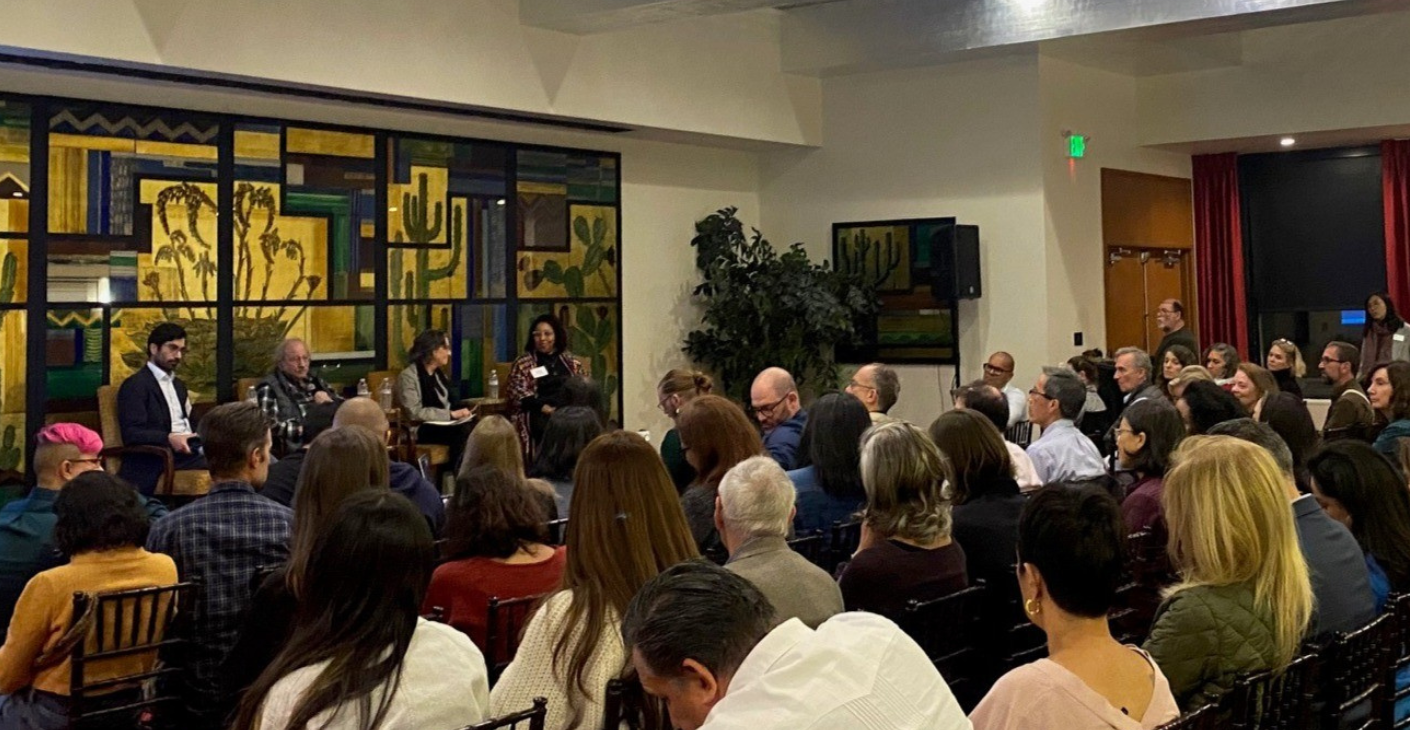On November 15, the San Francisco Foundation hosted a compelling conversation with Marshall Ganz, renowned organizer and Harvard Kennedy School senior lecturer, exploring the essence of community organizing and democratic power-building in today’s challenging political landscape.
Ganz, drawing from his decades of experience organizing in the Civil Rights movement, with the United Farm Workers, and other movements, emphasized that effective organizing must be grounded in authentic relationships rather than transactional connections. “Relationships build future possibilities, not just immediate transactions,” he noted, critiquing how modern electoral campaigns and NGOs often reduce complex human interactions to mere data points.
The discussion deepened as Tamisha Torres-Walker of the Safe Return Project, and elected City Council member of Antioch, joined the conversation, bringing critical perspectives from her work in community organizing. Walker highlighted the importance of allowing communities space to process loss and pain before jumping into strategy, noting, “Sometimes we need to just sit back and be in community with our family and just say – let’s just eat, let’s just meet.”
A key focus of the evening was Ganz’s framework for narrative and storytelling in organizing. He outlined his “story of self, story of us, story of now” approach, emphasizing that effective stories focus on moments of choice and agency rather than just trauma. “It’s not about displaying wounds,” Ganz explained, “it’s about where we found strength.”
The conversation took a self-reflective turn examining power dynamics within organizing institutions. Ganz challenged the current NGO-heavy landscape of civil society, arguing that true democratic power requires organizations accountable to their members rather than donors. “Where do we learn to practice democracy when there isn’t anything democratic about NGOs?” he questioned.
Rudy Mehrbani, Senior Director of the Governance Program at Democracy Fund, added insights about philanthropy’s role in supporting long-term structural change while responding to immediate crises. He emphasized the importance of ensuring grassroots organizations have sustained support between election cycles.
Throughout the evening, speakers wrestled with questions of hope and strategy in difficult times. Ganz distinguished between optimism and hope, drawing on medieval philosopher Maimonides to define hope as “belief in the plausibility of the possible rather than the necessity of the probable.”
The discussion concluded with a call to action for attendees to engage in meaningful conversation about their takeaways and how to apply them in their daily lives beyond the event. Judith Bell, SFF’s Chief Impact Officer, said that such reflection and dialogue are crucial for transforming insights into action.
This thought-provoking evening highlighted the ongoing challenges and opportunities in building democratic power through authentic organizing. It underscored that while the path forward may be uncertain, hope lies in our collective ability to build genuine relationships, tell powerful stories, and create truly democratic institutions accountable to the communities they serve.
Resources:
- Learn more about supporting democracy locally through SFF’s democracy field of interest fund.
- Sign on to and share the “Election Day to Every Day” letter to help boost pro-democracy philanthropy.
- Check out SFF’s post-election give guide for ways to support democracy locally.
- Learn about more about Marshall’s new book, People, Power, Change: Organizing for Democratic Renewal.


